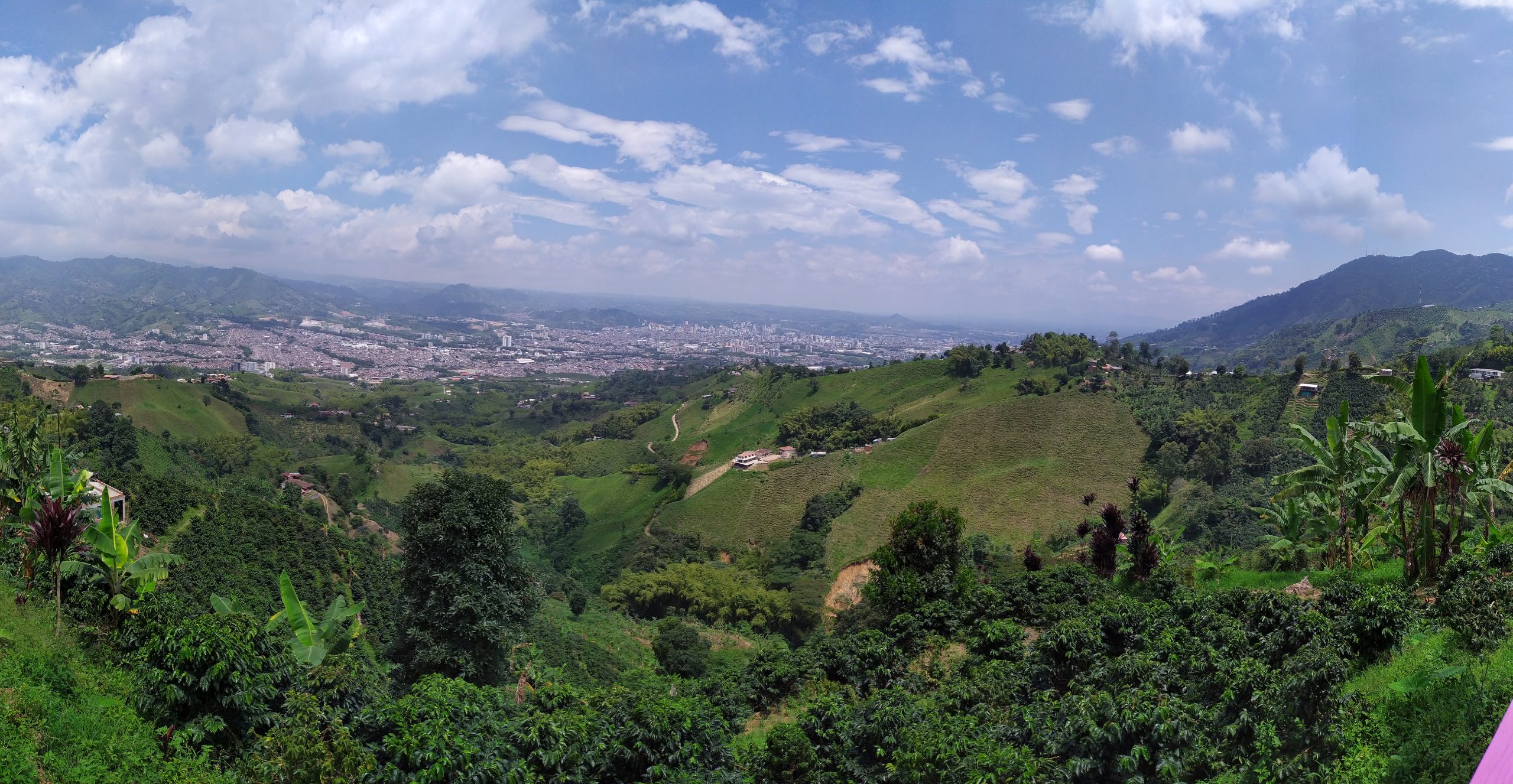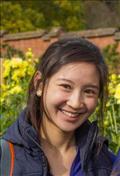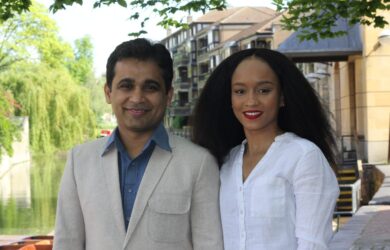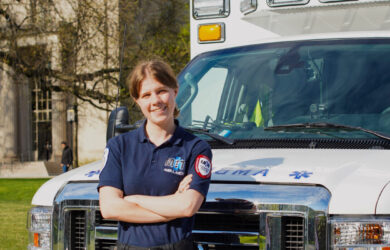
Dr Jacqui Poon, founder of Farming Data Ltd, has won funding for a pilot project to help rural smallholders in Colombia improve their earnings.
Agriculture is an effective route to inclusive economic development for rural communities.
Dr Jacqui Poon
A Gates Cambridge alumna is leading an international consortium in a £391k pilot project to help smallholders in Colombia, including many women farmers, to improve their marketing channels and get their crops to market.
Dr Jacqui Poon's start-up Farming Data Ltd provides a digital trading platform which is linked to an SMS, voice message and smartphone app. The aim is to improve rural incomes and trading of agricultural products by underserved smallholders, particularly women in post-conflict areas.
It was recently selected as one of seven finalists for an Innovate UK Agri-Tech Catalyst Competition for projects in Colombia.
The British Embassy in Bogota announced the finalists in the £3 million Colombian Prosperity Fund Programme. The projects are managed by consortia of private sector companies, academic bodies and civil society from the UK and Colombia and goals include greater agriculture productivity; inclusive growth; poverty reduction; gender equality; women’s economic empowerment, as well as new commercial opportunities between both countries.
Jacqui, CEO and managing director of Farming Data Ltd, will oversee the 16-month pilot project which secured a grant worth £320k to fund its work in partnership with Colombian organisations Región Central, RAP-E, ASOCAFE Manantial and Patrimonio Natural.
She says: "Agriculture is an effective route to inclusive economic development for rural communities. Colombia is in a strong position to rapidly develop rural post-conflict areas, taking advantage of existing physical and digital infrastructure and high demand for agricultural products. However, current marketplace strongly disadvantages small-scale rural producers."
The consortium of organisations she has brought together will work together on an innovative digital platform that addresses unique supply chain issues encountered by rural producers and local buyers.
Farmers taking part grow crops like plantain, beans, cassava, coffee and amazonic fruits, but face challenges from low prices and limited marketing channels.
Farming Data Ltd UK has been developing the platform designed to return location-specific market data insights back to the hands of small-scale producers.
Jacqui [2012], who did a PhD in Plant Sciences at Cambridge with the support of a Gates Cambridge Scholarship, adds: "As smartphone adoption in Colombia is slower than in neighbouring countries, all essential features of this platform work for farmers with 2G phones. We're testing the best ways of delivering digital applications in the Colombian smallholder context by monitoring adoption rates, rural income changes, text/digital literacy and gender differences."
The platform's goal is to increase market transparency and help farmers avoid exploitation by middlemen. Jacqui says improving connections to buyers has been shown to achieve 20-30% higher sale prices, positively impacting household incomes and the wider rural economy.
She adds that the platform also makes it easier for buyers to source straight from local producers, minimise uncertainty and reap the logistical benefits of having the entire transaction on one platform.
*To keep up to date with Farming Data Ltd's work you can follow them on:
Instagram: https://www.instagram.com/farmingdata/
Twitter: https://twitter.com/farming_data
Facebook: https://www.facebook.com/farmingdata.io/
The organisation's blog: https://farmingdata.io/blog/

Jacquelyne Poon
- Alumni
- Canada
- 2012 PhD Plant Sciences
- Churchill College
With increasing global food demands, chronic hunger and coinciding crop damages, food security is an important issue that requires the attention from all corners of the world. Crop availability is constantly being challenged by multiple factors, including, but not limited to, environmental impact, pests, and pathogens. My current interest in promoting food security largely developed out of my MSc work on cassava, a staple food for Sub-Saharan Africans. As I pursue my PhD studies at Cambridge, I aim to better understand how plants could increase their resistance to pathogens, including viruses, bacteria, and fungi. Plants have defence mechanisms that counter the attacks imposed by the aforementioned pathogens. However, the exact methods employed by various plants are not entirely known up to date. Additionally, I hope to work at the interface between the scientific community and the public, by using my scientific knowledge and bridging the gap between the two communities.












